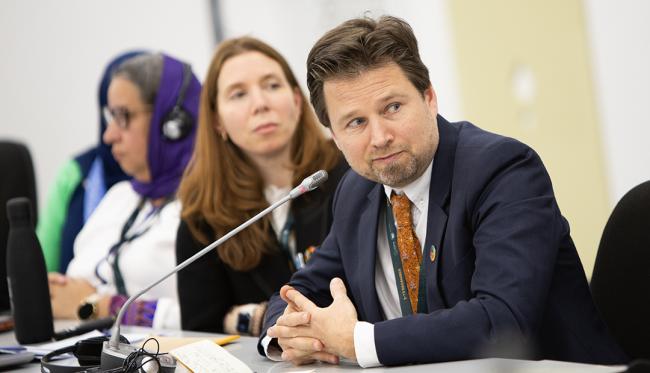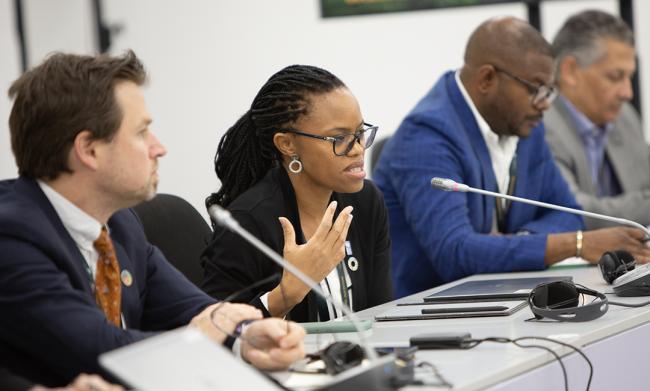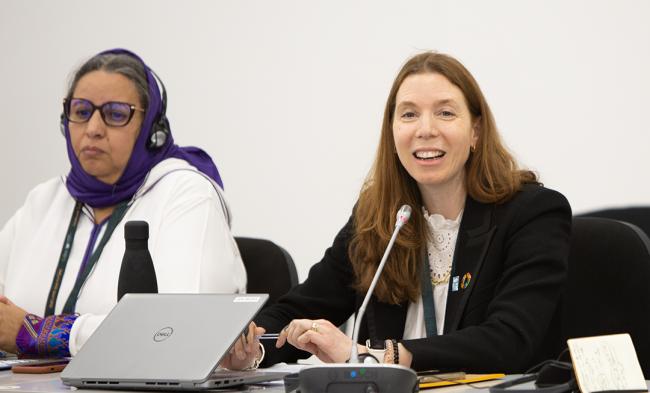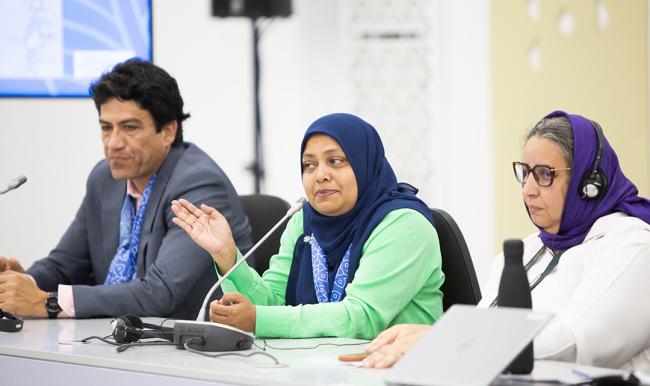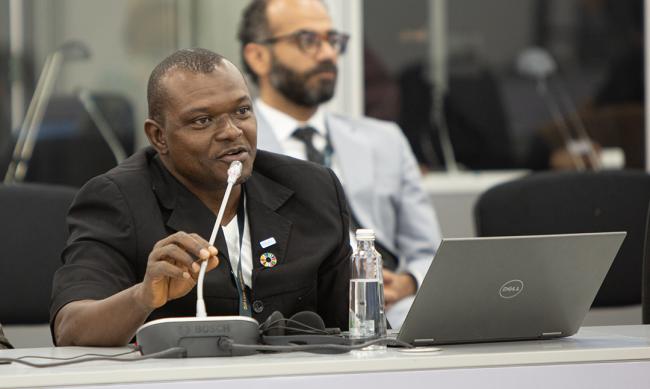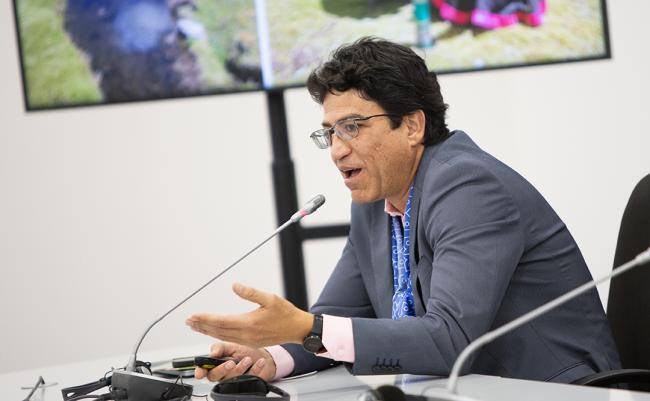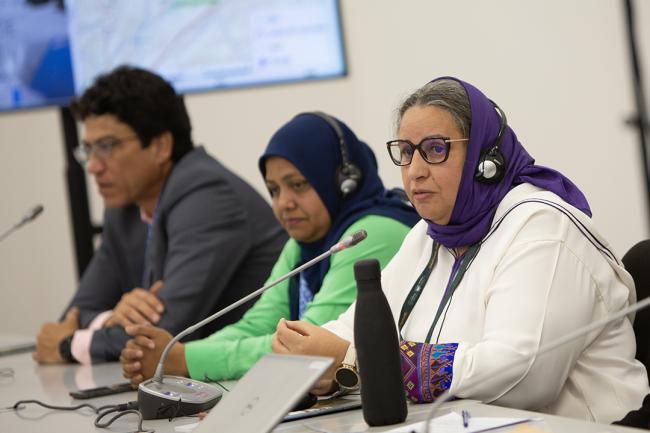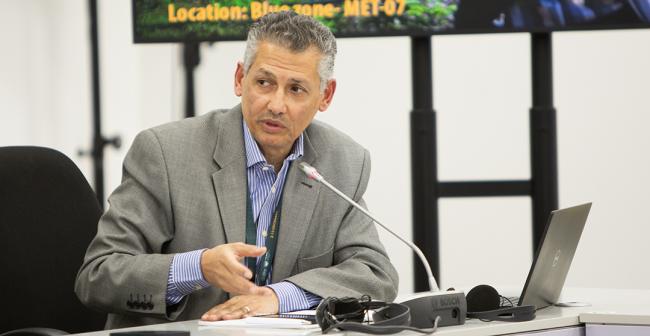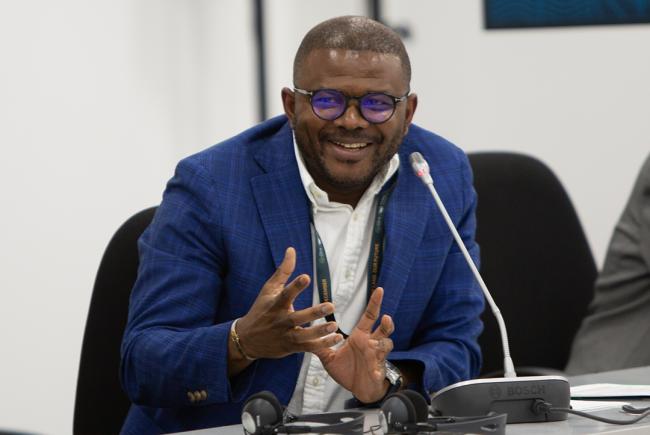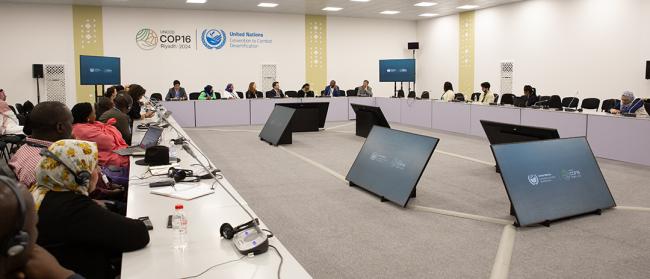About
In the Maldives, Sierra Leone, Peru and Morocco, small grants for land restoration are enabling traditional conservation practices to be documented and maintained, while opening up new businesses and market opportunities.
Grantees of the Global Environment Facility (GEF) Small Grants Programme (SGP), implemented by the UN Development Programme (UNDP), illustrated the power of empowering local communities to take control of how they manage their land during this event. Examples ranged from Andean communities in Peru facing climate impacts and water scarcity, residents of an atoll in the Maldives seeking to conserve a biodiversity hotspot, and a tiny community in Sierra Leone facing degraded land and land tenure conflict.
Terence Hay-Edie, Programme Manager, SGP, moderated the event. In opening remarks, Phemo Karen Kgomotso, Senior Technical Advisor, UNDP, noted that UNDP seeks to apply the SGP approach beyond environmental issues to social programmes as it is seen as an effective way to transform governance systems. She reminded everyone that landscapes are connected to peoples’ identity, and deserve respect and recognition that “this is where the answers lie.”
Diana Salvemini, Principal Technical Advisor, UNDP, noted that active participation of local communities and Indigenous Peoples is critical because local actors are agents of change and, thus, should be empowered to drive change. She noted the SGP has been successful in mobilizing co-financing from bilateral donors, including Germany, Australia, and Japan.
Fathimath Saeedha, SGP National Coordinator, Maldives, described how her country has a small population of 515,000 spread across a series of atolls and small islands, with an economy that is highly dependent on tourism. She explained how the local community on one of the atolls—a biodiversity hotspot with wetland areas featuring mangroves—had used SGP funds to assess local biodiversity and consult with local stakeholders, including women and youth, to plan conservation activities. She noted that a community management plan was developed and is about to receive government approval that will enable enforcement.
Abdul Sannoh, SGP National Coordinator, Sierra Leone, noted that the SGP has been operating in Sierra Leone for about 10 years. He presented a case of sustainable crop and livestock farming in an area of 180 square kms, inhabited by 150 people, in the northern region of the country, where there was conflict over land tenure, rapid land degradation due to over-grazing by pastoralists, and logging and mining activities by many foreign companies. He explained that, by applying participatory land use planning and management, the community had shifted to activities centred on agro-ecology, vegetable growing, and forest regeneration, which led to conflict resolution over the contested land and women gaining access to the land.
Manuel Mavila, SGP National Coordinator, Peru, presented a summary of the main impacts achieved via multiple projects during the past five years that richly illustrated the power of exchanging knowledge for scaling up local solutions. He described the process, beginning with a participatory landscape strategy that allows stakeholders to decide locally where the priorities are, then designing of a local action strategy in collaboration with local and regional authorities via a multi-stakeholder platform. He presented project achievements, including: restoring peatlands and natural canals to reach more grasslands and improve the quality of grass for llama grazing; encouraging local inhabitants to conserve resilient crop varieties; and restoring ancient Inca terraces thanks to technical advice on irrigation systems and solar water pumping. Mavila pointed out that many projects are able to scale up, based on gaining support from local, regional, and national authorities that have collectively invested millions to replicate small innovations pioneered by grantees.
Najwa Es-Siari, President, Moroccan Biodiversity and Livelihoods Association (MBLA), described MBLA’s work in the central part of the High Atlas Mountains since 2014, noting the area’s environmental importance as a water supply source and Ramsar site. SGP funds, she said, have enabled research to document traditional conservation practices in the management of water, forests, agricultural land, rangelands, and seed conservation. She also presented project activities to establish community seed banks and community-managed nurseries for indigenous plants selected by local farmers for land restoration and forest ecosystem conservation. Other activities she mentioned included the certification of responsible forest management, a farmer field school in agroecology, and a business incubator that supports projects by local cooperatives to develop and sell food products.
Mohamed Bayoumi, Environmental Specialist, UNDP Egypt, described the SGP’s contribution in enabling projects to better reach local communities. He mentioned, as examples: SGP support for the distribution of energy-efficient compact fluorescent lamps (CFLs) through door-to-door visits in rural areas; community awareness campaigns around small-scale solar energy systems; and the introduction of new crops and income-generating activities to supplement farmer incomes in areas affected by salinity intrusion.
During the ensuing discussion among participants, Pamela Bapoo-Dundoo, SGP coordinator from Mauritius, highlighted how SGP funds had supported fishers to successfully advocate for the creation of four marine reserves, lead in creating management plans for the reserves, and close the octopus fishery for the first time. Another participant invited collaboration to pass on traditional knowledge to youth and young professionals.
Peter Umunay, Senior Environmental Specialist, GEF, proposed that “small grants” should be referred to as “strategic grants” as the examples presented showed how the grants had unlocked potential, resulting in significant positive impacts. He suggested that the next challenge will be to achieve impact at scale, meaning not only geographic scale, but also scale in terms of the number of partnerships and the diversity of partners.
Organizer: GEF Small Grants Programme, UNDP
Contact: Diana Salvemini, Diana.salvemini@undp.org
Website: https://sgp.undp.org
To receive free coverage of global environmental events delivered to your inbox, subscribe to the ENB Update newsletter.
All ENB photos are free to use with attribution. For UNCCD COP 15 Side Events, please use: Photo by IISD/ENB | Angeles Estrada Vigil


